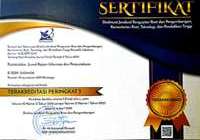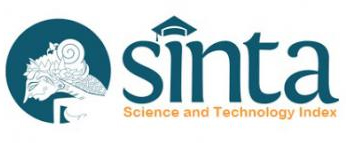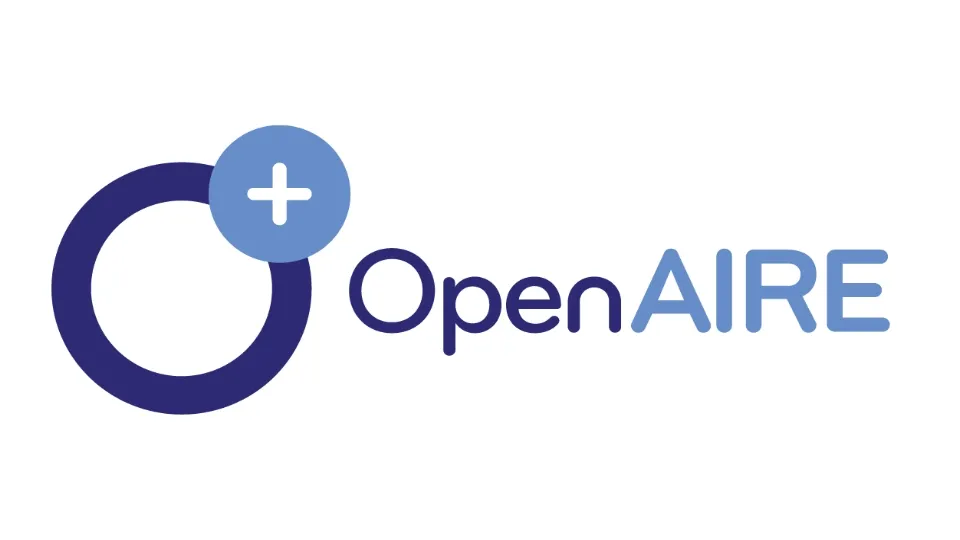Pentingnya Pemahaman Pustakawan Terhadap Bentuk Komunikasi Ilmiah Pada Profil Google Scholar
DOI:
https://doi.org/10.21154/pustakaloka.v8i1.450Keywords:
scientific communication, google scholar profile, librarianAbstract
Abstrak: Banyaknya karya ilmiah yang sudah dihasilkan seorang penulis, tidak terlepas dari penggunaan karya ilmiah penulis lain. Publikasi yang telah dihasilkan oleh seorang penulis akan menunjukkan produktivitas penulis tersebut. Banyaknya sitasi yang diperoleh oleh sebuah publikasi menunjukkan dampak publikasi tersebut terhadap publikasi yang lain. Dewasa ini Perguruan tinggi dituntut untuk menampilkan performance mereka dalam hal banyaknya publikasi yang dihasilkan dan juga dampak publikasi yang dihasilkan untuk publikasi yang lain. Mengutip publikasi lain merupakan salah satu bentuk komunikasi ilmiah yang dilakukan oleh penulis atau peneliti. Makalah ini akan memaparkan pemanfaatan profile Google Scholar dalam komunikasi ilmiah dan pentingnya pustakawan memahami salah satu bentuk komunikasi ilmiah tersebut. Profil Google Scholar cukup efektif digunakan oleh institusi perguruan tinggi untuk menampilkan profil dosen sehingga akan semakin visible di dunia akademik online. Penting bagi pustakawan memahami tentang profile Google Scholar dan manfaatnya, sehingga dapat memberikan kontribusi dalam peningkatan kualitas perguruan tinggi.
Abstract: Scientific publication which produced by an author was not far from an other the author. The number of author scientific publication showed author productivity. Publication citation described the impact of the publication to other publication. University have to give their performance in the number of scientific publication which produced and its impact to other publication. Citating wa a form of scientific communication between authors. This paper figured out the usage of Google Scholar Profile in scientific communication and the importance of librarian understanding to one scientific communications. Google Scholar profile wa effective to display university lecturer profile which made it visible. The comprehension librarian of profile Google Scholar gave contribution in university quality improvement.
References
Andriani, Juznia. “Studi Kualitatif Mengenai Alasan Menyitir Dokumen: Kasus pada Lima Mahasiswa Program Pascasarjana IPB” dalam Jurnal Perpustakaan Pertanian Vol. 11 Nomor 2, 2002
Ambarani, Dyas. “Komunikasi Ilmiah Informal Di antara Peneliti Fakultas Ilmu Komputer Universitas Indonesia” , dalam Skripsi. Diunduh dari http://lib.ui.ac.id. 04/05/2016
Association of Research Libraries. Scholarly Communication. http://www.arl.org/focus-areas/scholarly-communication#.VzAYzjEkC1s. 05/05/2016
Kementerian Riset, Teknologi dan Pendidikan Tinggi, Surat Dirjen Dikti No. 152/E/T/2012 : Wajib Publikasi Ilmiah Bagi S1/S2/S3. Diunduh dari http://www.kopertis12 .or.id. 04/05/2016
Kementerian Riset, Teknologi dan Pendidikan Tinggi, Penghargaan Publikasi Ilmiah Internasional. Diunduh dari http://simlitabmas.dikti.go.id /fileUpload /pengumuman/ Penghargaan%20Publikasi%20Ilmiah%20Internasional.pdf. 04/05/2016
Harahap, Ramlan. “Produktivitas Dosen Perguruan Tinggi Negeri dalam Bidang Penelitian: Studi Kasus Peneliti Program Penelitian Dosen Muda dalam Berbagai Bidang Ilmu, Dirjen Dikti, Depdikbud”, dalam Tesis. Diunduh dari http://lib.ui.ac.id. 04/05/2016
Muhardi & Arinto Nurcahyono. “Pengaruh Tunjangan Sertifikasi terhadap Produktivitas Dosen dalam Menghasilkan Karya Ilmiah dan Penelitian”, dalam Prosiding Sosial, Ekonomi, dan Humaniora Vol. 2. Nomor 1. (2011).104
Downloads
Published
Issue
Section
License
Requirements to be met by the author as follows:
- Author storing copyright and grant the journal right of first publication manuscripts simultaneously with licensed under the Creative Commons Attribution License that allows others to share the work with a statement of the work's authorship and initial publication in this journal.
Authors can enter into the preparation of additional contractual separately for non-exclusive distribution of a rich version of the journal issue (eg: post it to an institutional repository or publish it in a book), with the recognition of initial publication in this journal.
Authors are allowed and encouraged to post their work online (eg, in institutional repositories or on their website) prior to and during the submission process, because it can lead to productive exchanges, as well as citations earlier and more severe than published works. (see The Effect of Open Access).















